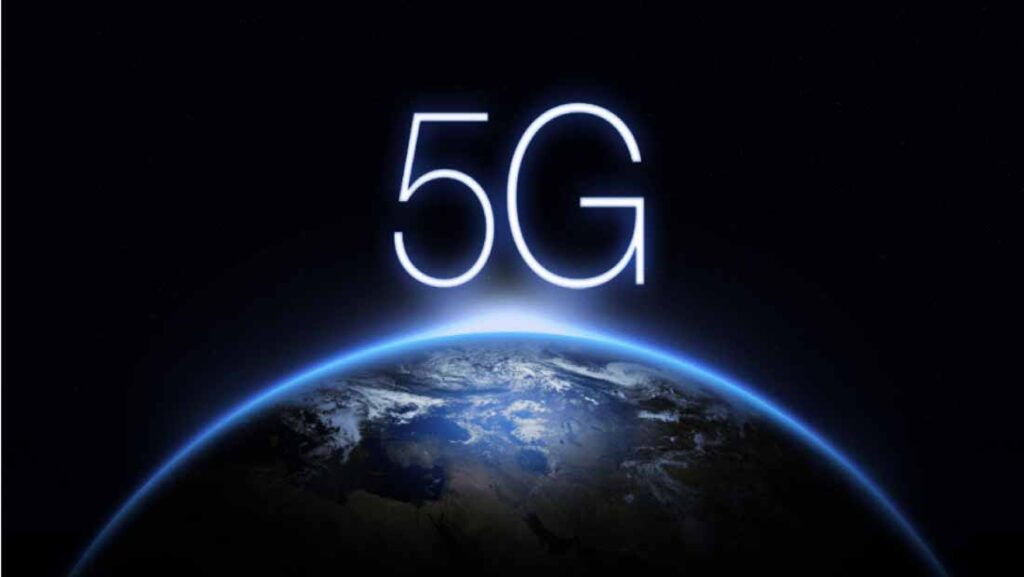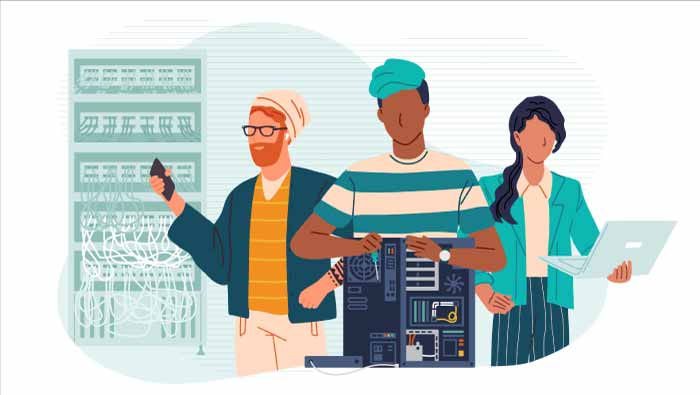What is a benefit of 5G technology?
So what exactly is 5G technology and what are its benefits? In this article, we’ll cover some of the main benefits of this emerging technology, such as lower latency, higher speed, and energy efficiency. We’ll also discuss some of the ways 5G is better than its predecessors. In this article, we will discuss the advantages of 5G in general and its potential for different sectors, such as the automotive industry.
Low latency
In a world where real-time communications are increasingly critical, 5G technology can make all of this possible. In fact, this technology promises ultra-low latency: the delays suffered by network communications. Low latency can improve everything from video games to video conferencing. The new wireless network will help businesses deliver on this promise now. If you’re interested in getting the most out of this new technology, here are some of the things you should consider.
Reducing latency is a major benefit of 5G technology for many industries. Low latency is important in remote physical therapy, microsurgery, and other fields where AR is a commercial strength. One example is a health sensor that can monitor a patient’s health and inform a doctor from anywhere in the world. The development of 5G will have a significant economic impact: CTIA predicts economic growth worth $500 billion and three million new jobs as a result of its widespread deployment. The wireless industry has to balance revenue with expenses, and 5G technology will play a vital role in achieving the latter.
While it is true that 5G is a necessary component of IoT, it can also have a detrimental effect on many aspects of life. For example, low latency can make smart home devices, autonomous vehicles, and other connected devices easier to use. Reducing latency will be especially important for video conferencing, which can lead to delays even on 4G networks. However, new technology will drastically reduce the latency of video conferencing and other similar applications.
Faster
If you’re thinking about switching to a 5G network, you might be wondering how fast the speed will be. While the theoretical speeds of 5G are extremely impressive, actual download speeds can vary widely. The difference can be up to 100 times faster than the previous generation of 4G networks. The speed will also depend on factors such as the number of people connecting to the network and the type of device you are using.
Although 5G is still in its early stages, it is already beginning to impact our lives. First, it will enable faster and more reliable connections in places without wired internet infrastructure. This technology is very likely to help rural areas, new construction sites and developing countries where there is currently no Internet service. It will also provide better reliability for mobile devices and reduce latency for mobile devices. Ultimately, it will make it possible for everyone to experience faster speeds on the internet.
Another major benefit of 5G is its reduced latency
Another major benefit of 5G is its reduced latency. Its on-air latency is usually eight to 12 milliseconds, although this number is often affected by HARQ retransmissions and backhaul . Verizon has reported 30ms latency since its initial 5G deployment. However, low latency is achieved by using edge servers that are located near cell towers. In addition, handover latency can range from 50 to 500 milliseconds, making 5G a big step towards better connectivity and services.
Another major change is that 5G networks will be able to operate in three frequency bands. These are known as millimeter waves and use higher frequencies than previous generations. While they provide faster data connections, they don’t travel as far as 4G and can be clogged by buildings. The next step for 5G will be mmWave, which will increase speeds to a maximum of four gigabits per second.
Recommended products
More energy efficient
In addition to better energy efficiency, 5G technology is predicted to be cheaper per bit than its predecessors. According to research by InterDigital and ABI Research, by 2025, the ICT sector will be responsible for around 20% of global consumption. The technology is also likely to generate more data-intensive services, and the power consumption of 5G networks is expected to be much higher than that of current 4G technologies. The environmental impact of 5G technology is important to the world’s ongoing effort to reduce carbon emissions.
Proponents of 5G argue that it will have a side effect on the global economy, including a shift to more renewable energy. By 2020, the use of 5G networks could lead to an overall 15% reduction in global emissions, equivalent to the combined emissions of the US and EU. In addition to being more energy efficient, 5G can enable interconnected supply chains and data exchange, allowing operators to save on energy costs and improve quality of life.
The overall energy efficiency of 5G networks is up to 90% higher than that of 4G, according to Huawei’s research. This is because 5G networks are designed to incorporate energy aspects from the design stage. The new grids are expected to have calibrated efficiency mechanisms that can dramatically reduce energy use. This energy-efficient technology will also allow devices to be in an energy-efficient sleep mode, resulting in longer battery life.
While current 4G technology has been touted as the best option for the environment, newer technology is more energy efficient. According to Nokia and Telefonica, 5G networks could be 90 percent more energy efficient than legacy 4G networks. This is a positive sign for the environment and is a major concern for network operators. The new technology is also expected to reduce carbon emissions by 30 percent.
More reliable 5G technology
A higher-speed wireless network is essential for real-time updates and control of connected devices. 5G technology is designed to provide low latency, high-speed connectivity, and wide coverage. These qualities make 5G a critical technology for the IoT industry. 5G-enabled sensors can monitor package status, humidity, temperature, and location. A more reliable wireless network also makes it easier to expedite claims for corrupted packets. It also makes education more immersive.
As mobile commerce has become popular, 5G will make it possible for people to make more mobile purchases. Mobile commerce sales will reach $3 trillion this year, thanks to the proliferation of smartphones. But it won’t just benefit consumers; 5G technology will open the door to new data-intensive consumer experiences. But what can 5G technology do for the real estate industry? For starters, you can speed up the process of buying a property.
In addition to higher reliability, 5G will have greater capacity than current networks. This technology has more spectrum and can handle more high-demand applications simultaneously. This means better broadband service in rural areas. Some experts claim that maximum speeds could reach 10 Gps. Ultimately, 5G technology will make communication easier and more reliable in all areas of the world. Meanwhile, the internet is still in its early stages and rural areas may not need the best speed.
Beyond improving mobile connectivity, 5G also promises to improve connectivity in connected vehicles. A home broadband with 5G will be able to download movies in seconds and stream 4K movies without buffering. 5G technology will also enable the adoption of new technologies such as virtual reality and augmented reality. With high capacity and low latency, 5G will be a game-changer for consumers, businesses and industries. If 5G is the future, that’s the way to go.
Impact on the industry of 5G technology
The latest technology is poised to transform industries around the world. 5G will offer faster speeds, lower latency and higher bandwidth than existing 4G networks. With these capabilities, 5G will revolutionize the manufacturing industry and save businesses time and money by enabling smoother machine and data connectivity. But what will be the impact of 5G on industries? There are several important areas of impact. Let’s look at some of them.
Healthcare is one of the sectors that will benefit most from 5G networks. Developing medical alert solutions and wearable devices that can detect medical emergencies and alert first responders is a great use for 5G. It would allow for a more reliable line of communication, allowing for better exchange of information between public safety agencies. 5G networks could also help provide secure video sharing for body cameras and drones. Other uses include group chats, file sharing, and location sharing.
As 5G networks become more robust, they will enable new use cases in nearly every industry. The US economy will also benefit from 5G as it will bring lower latency, higher device density, and faster speed. With these benefits, 5G will stimulate economic growth and create jobs in almost every sector of the economy. These indirect benefits will account for 70 percent of the value of 5G. The 5G economy will change the landscape of the industry, with the creation of new verticals and industries every day.
Recommended products


